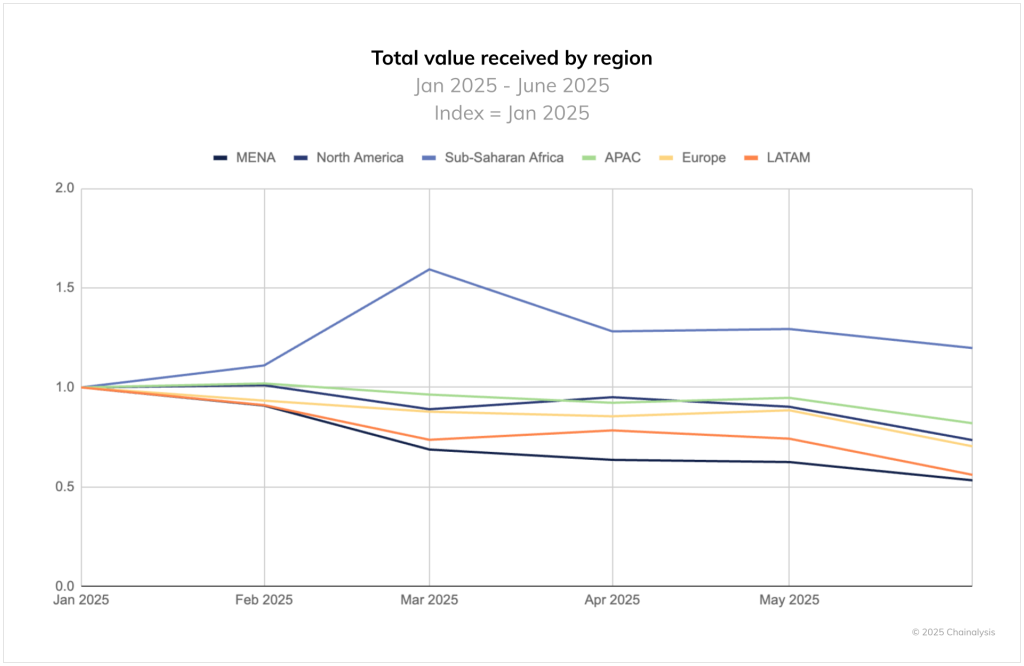Unregistered Crypto Firms in Canada Fueling Million-Dollar Money Laundering

Unregistered crypto exchange companies across Canada are exploiting regulatory gaps by facilitating large cash-for-crypto transactions without requiring identity verification, while international platforms offer to deliver up to $1 million in untraceable cash.
An undercover investigation revealed how easily anyone can move money through these services with zero compliance checks, exposing a system that experts warn enables unlimited criminal activity across the country’s expanding digital finance sector.
Canada’s longstanding problems with dirty money in banking, casinos, and real estate have now extended into crypto services, where weak enforcement and inadequate oversight have created new channels for laundering and illicit finance.
While blockchain technology allows investigators to track some transactions, crypto-to-cash services eliminate controls at critical entry and exit points, enabling drug cartels and potential terrorists to move funds anonymously through Canadian cities.
Undercover Operation Exposes Zero-Verification Cash Transactions
A joint investigation by Radio-Canada, CBC News, Toronto Star, and La Presse uncovered how easily criminals can access unregistered crypto-to-cash services throughout Canada.
In one Toronto transaction, an undercover reporter walked into a FINTRAC-registered money transfer business and collected $1,900 in cash using only a $5 bill serial number as verification, after transferring tether to a Ukraine-based exchange 001k via Telegram.
The transaction violated Canadian anti-money laundering regulations requiring money service businesses to record recipient information for transfers exceeding $1,000.
Despite being registered with FINTRAC, the Toronto storefront processed the illegal exchange through a rogue manager who later claimed he used his own cash “earned legally,” while the counter employee “had no knowledge of the situation.“
Meanwhile, journalists in Quebec received offers from 001k and another service to deliver $1 million and $890,000, respectively, to Montreal locations in exchange for tether transfers, with no identity verification required.
Since August 2022, 001k has received over $14.8 billion in cryptocurrency transfers according to Chainalysis data, yet it operates illegally in Canada without FINTRAC registration.
Industry Scale and Enforcement Challenges Mount
Richard Sanders, a leading expert on crypto-to-cash operations, warned that services with “absolutely zero checks” facilitate unlimited crime.
“I could not have in my worst dreams predicted the reality we’re in now,” Sanders said, while Nick Smart from Crystal intelligence noted that Hong Kong’s crypto-to-cash businesses alone processed at least $2.5 billion last year, calling them “a perfect place to operate as a criminal because no one’s going to ask any questions.“
Joseph Iuso, executive director of the Canadian Money Services Business Association, confirmed FINTRAC lacks resources to oversee all 2,600-plus registered money services businesses, let alone police unregistered ones.
One web directory lists more than 20 unregistered crypto-to-cash services operating from Halifax to Vancouver, with several Toronto-based operators telling undercover reporters they wouldn’t request identification.
FINTRAC declined to answer questions about the investigation but stated it was “prepared to take strong action as necessary” through administrative penalties and law enforcement referrals.
The enforcement gap persists despite Canada’s largest-ever crypto seizure in September, when the Royal Canadian Mounted Police dismantled the TradeOgre exchange and seized $56 million CAD in assets following a year-long investigation launched after a Europol tip.
Regulatory Framework Takes Shape
Canada is now racing to implement comprehensive stablecoin regulations ahead of its federal budget, following the United States’ passage of the GENIUS Act earlier this year.
The 2025 federal budget framework will require stablecoin issuers to maintain full reserves, establish clear redemption policies, and implement robust risk management systems. The Bank of Canada will allocate $10 million over two years for oversight.
Despite moderate crypto adoption rates, with only 3% of Canadians using Bitcoin for transactions in 2023, institutional interest has grown significantly.
A 2024 KPMG survey found that 39% of Canadian institutional investors held crypto exposure, up from 31% in 2021. The country hosts over 3,000 Bitcoin ATMs, the world’s second-largest concentration of these machines.
The post Unregistered Crypto Firms in Canada Fueling Million-Dollar Money Laundering appeared first on Cryptonews.



